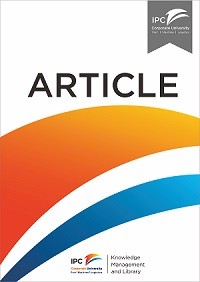Article
An analysis of the overcapacity problem under the decentralized management system of container ports in Japan
This article is concerned with an analytical summary of how the Japanese container ports have been taking place overcapacity problem in a systematic way. It focuses on institutional aspects of the overcapacity problem from the viewpoint of accounting cost and opportunity cost. The ®rst issue arises due to the port authority’s accounting system and insu cient disclosures of ®nancial statements of port business to the port users and taxpayers. The second issue is inherently related to resource allocation between the state government and local governments through the budget system and income distribution programmes. Since a proper allocation of economic resources in the port sector as a whole will depend on investment decisions being taken within a coherent framework for ensuring that costs are passed on to port users, these issues are closely related to each other in reality. Although the budget system is completely controlled by the state government, the local governments have authoritative power over port planning, ®nancing, and management, which is assured by the Ports and Harbours Law. The overcapacity problem appears to be an inevitable result.
Ketersediaan
Informasi Detail
- Judul Seri
-
Maritime Policy & Management: The flagship journal of international shipping and port research
- No. Panggil
-
ATC LO TER a
- Penerbit
- Japan : Taylor and Francis., 2002
- Deskripsi Fisik
-
15p
- Bahasa
-
English
- ISBN/ISSN
-
1464±5254
- Klasifikasi
-
LO
- Tipe Isi
-
-
- Tipe Media
-
-
- Tipe Pembawa
-
online resource
- Edisi
-
VOL. 29, NO. 1, 3±15
- Subjek
- Info Detail Spesifik
-
-
- Pernyataan Tanggungjawab
-
Hideko Terada
Versi lain/terkait
| Judul | Edisi | Bahasa |
|---|---|---|
| A comparison of efficiency with productivity criteria for european container ports | id | |
| Container ports multimodal transport in China from the view of low carbon | Volume 28 Number 3 | en |
| Maritime policy in the North Sea region : application of the cluster approach | Vol. 16, 4, 484–500 | en |
Lampiran Berkas
Komentar
Anda harus masuk sebelum memberikan komentar

 Karya Umum
Karya Umum  Filsafat
Filsafat  Agama
Agama  Ilmu-ilmu Sosial
Ilmu-ilmu Sosial  Bahasa
Bahasa  Ilmu-ilmu Murni
Ilmu-ilmu Murni  Ilmu-ilmu Terapan
Ilmu-ilmu Terapan  Kesenian, Hiburan, dan Olahraga
Kesenian, Hiburan, dan Olahraga  Kesusastraan
Kesusastraan  Geografi dan Sejarah
Geografi dan Sejarah